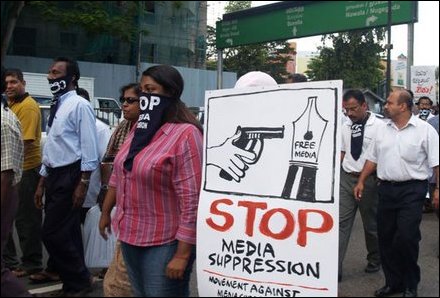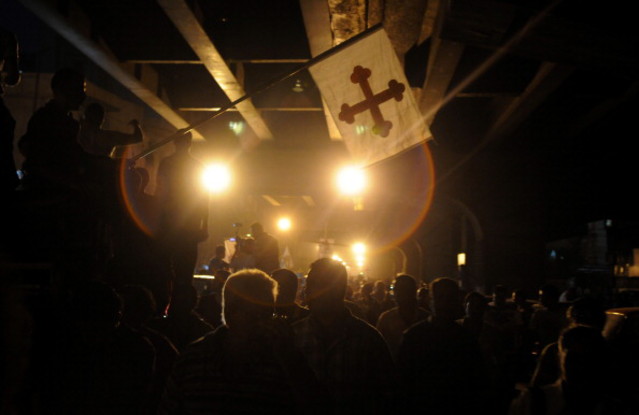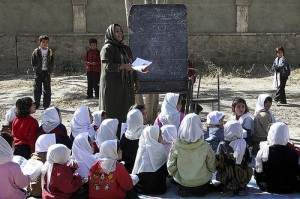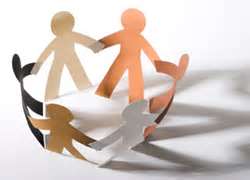Historical Overview: The Erosion of Democracy
Sri Lanka is one of Asia’s oldest democracies. Despite times of turmoil, such as the 1958 Race Riots, the attempted military coup in 1962 and the 1971 Youth Insurrection, Sri Lankan democratic institutions prevailed and elections, free media and the independent judiciary were robust in the past. However, starting in the early 1970s there has been a gradual erosion of the country’s democratic traditions.
After Sri Lanka became a Republic in 1972, the former colony severed ties with Britain and introduced a non-executive constitutional presidency. The first impact on the country’s democratic framework was evident when the President at the time, Ms. Sirimavo Bandaranaike, introduced emergency laws to crush the insurgency. With national security as a justification, these laws were used to close down free media and in 1973 the government began to acquire newspapers. 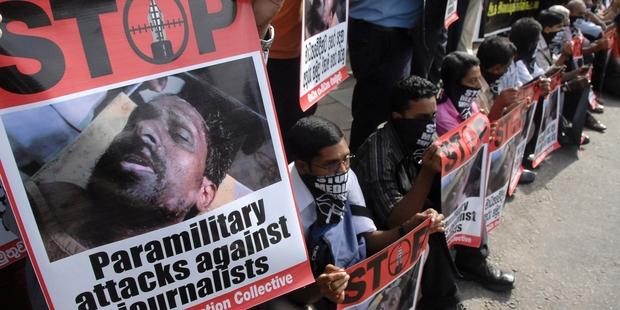
The most severe attack on democracy came with the introduction of a new constitution in 1978. When the United National Party (UNP), led by J.R. Jayewardene, won a landslide majority, they were able to change the constitution and introduce one of the most powerful executive presidencies in the world, which combined the role of both president and prime minister. The new powers of the president included the appointment of all ministers and public officers, as well as the appointment of senior judges, the attorney general, the elections commissioner and other top officials. The President was also given unlimited discretion in many spheres, and as the head of his or her political party often had a grip on the legislature as well. Under this new constitutional change, the only way to remove the president is through a very cumbersome impeachment process which required a 2/3 majority or support of over ½ of MPs and speaker of parliament.
Democracy, and peace, suffered a serious blow following the ethnic riots of 1983 which led to a polarization of the communities. A majority allowed the Sri Lankan government to pass a law requiring all parties to take an oath of office to the state and Buddhism. This helped the rebel group Liberation Tigers of Tamil Eelam (LTTE) garner greater public support, as the minority Tamil population was left without democratic representation.
By 2001, the continued politicization of policies and the public service posed a serious threat to democracy and rule of law in the country and there were increasing demands to curtail presidential power. This pushed President Chandrika Kumaratunga to introduce the 17th amendment to limit the power of the presidential office. However, these reforms were short-lived after a new president was elected in 2005.
Rajapakse: Democracy under Siege
Since coming into power in 2005, President Madinda Rajapakse has chipped away at the country’s democratic institutions at a faster pace than any of his predecessors. Under the Rajapakse administration there has been rampant nepotism, with the families of politicians being given top positions. By giving his own family the highest offices within the executive, Rajapakse has effectively created a dynasty.
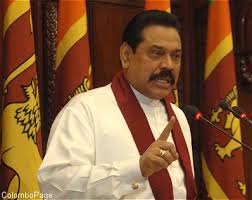 Shortly after he assumed office, the Constitutional Council and independent commissions, introduced under the 17th amendment, lapsed and instead of reappointing them, he redistributed power to ministries under his control. The government has also engineered cross overs within parliament from opposition parties; rewarding MPs with ministerial portfolios in order to obtain a sufficient majority in parliament to allow him to amend the constitution. While in office, Rajapakse has also taken measure to curb freedom of expression and limit freedom of the media, with increasing disappearances and assassinations of critics and opposition.
Shortly after he assumed office, the Constitutional Council and independent commissions, introduced under the 17th amendment, lapsed and instead of reappointing them, he redistributed power to ministries under his control. The government has also engineered cross overs within parliament from opposition parties; rewarding MPs with ministerial portfolios in order to obtain a sufficient majority in parliament to allow him to amend the constitution. While in office, Rajapakse has also taken measure to curb freedom of expression and limit freedom of the media, with increasing disappearances and assassinations of critics and opposition.
In 2009, following the defeat of the LTTE, Rajapakse called for an early election, and used his political capital to get reelected. With this victory he introduced the18th amendment to the constitution, which abolished previous reforms, introduced by the 17th amendment, limiting presidential powers and removing the two term limit on presidential office. In the years since the war has ended, despite the military decimation of the LTTE, the Sri Lankan government continues to use the draconian emergency legislation.
Moving Forward
The Sri Lankan people are not confronting the issue that there is a democratic crisis in the country. Although, privately people are critical, in public they do not wish to challenge the government and the public media is largely silent. The people of Sri Lanka must be encouraged and empowered to assert their democratic rights against their government.
This, however, is not a country where all hope is lost. Looking back four years, immediately after general election, it seemed that there would be no dissent. However, despite the increasing militarization of the Sri Lankan state, there has been no real attempt by military to seize power. There is still democratic space for opposition, no matter how narrow it may be. Now the international community must ensure that this space is maintained or widened.
There is a need to develop a strong opposition party in Sri Lanka. The UNP is split into many factions and no one has emerged as a leader for the democratic struggle. In 2011, a “Lesson Learned and Reconciliation Commission” was put in place to look at issues since the ceasefire in 2002 between LTTE and government. This commission called for an independent judiciary, adherence to the rule of law, transparency, and an end to harassment of media and investigation of past incidents and abductions. Now the government must step up to implement the recommendations of this commission. 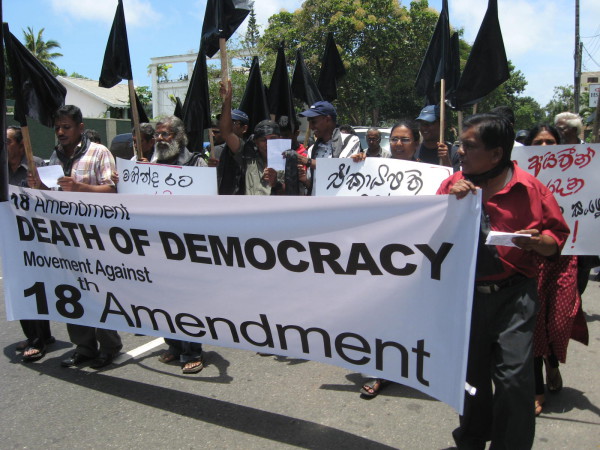
To combat the erosion of the rule of law, the judiciary must be safeguarded, and courts must be more assertive. If an independent judiciary is in place, and it is respected by the executive, a number of issues can be credibly addressed. Public institutions in Sri Lanka have relied on individuals for too long. It is essential to move away from this personality based model toward building a more robust institutional framework that can withstand this democratic crisis.
The international community, particularly India, has an important role to play in engaging the Sri Lankan government on issues of democracy, rule of law, the independence of the judiciary and calling upon the administration to meet its responsibilities. Although, the Sri Lankan government is seen to be close to China, the Chinese are unlikely to pressure the government in respect to rule of law or improving democratic governance.
In recent years, we have seen Sri Lanka move away from the west in favor of closer relations with states, such as Iran, China and Pakistan, who would invest in the country economically without probing into democratic and human rights issues. The Sri Lankan government has often framed international interference as neo-colonial, undue western influence trying to infringe on its sovereignty. Therefore, the ability of western states to intervene, particularly the US, may have its limits. Most recently, tension with the west has increased when the US announced that it would be seeking a resolution at the UN Human Rights Council pushing for an investigation into war crimes allegations. Nonetheless, the US remains the biggest export destination of Sri Lankan goods which puts it in a position to assert pressure on the Sri Lanka government.
Similarly, moderate voices in the diaspora communities have an important role to play in rallying their host government to assert pressure on the Sri Lankan state to rebuild democratic institutions. Once these institutions are rebuilt, legitimate grievances of the minorities and opposition members can be addressed through democratic channels.

